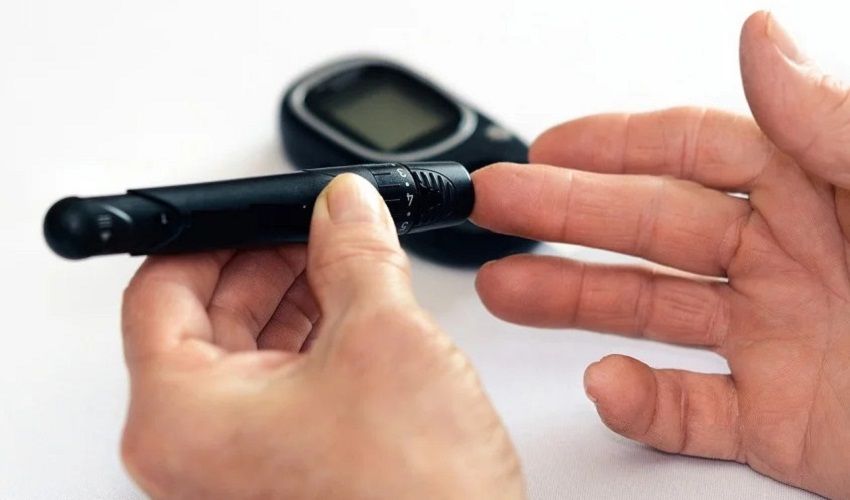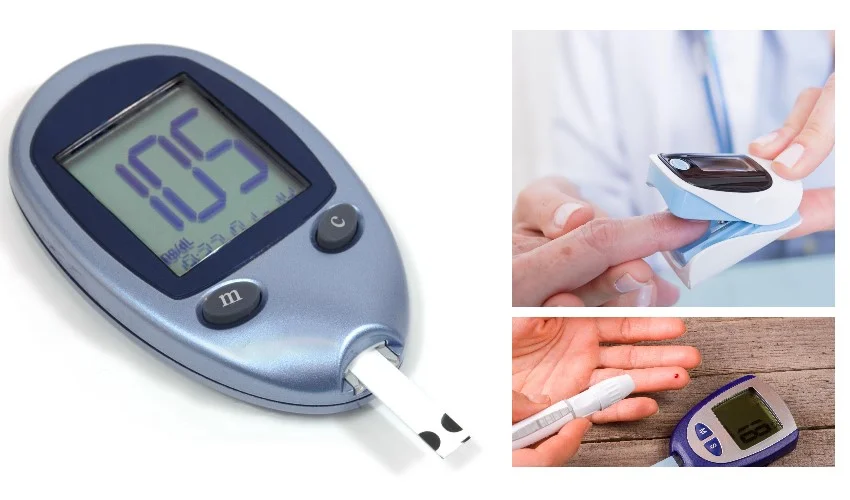Definition of Normal Blood Sugar Level
The definition of normal blood sugar level refers to the range of blood glucose levels that are considered healthy and within the optimal range for proper bodily function. It is important to maintain a normal blood sugar level as it is a key indicator of overall health and can help prevent the development of chronic conditions such as diabetes. The normal blood sugar level typically ranges between 70 to 99 milligrams per deciliter (mg/dL) when fasting and below 140 mg/dL two hours after eating. However, it is important to note that these values may vary depending on factors such as age, individual health conditions, and the presence of any underlying medical conditions. Regular monitoring of blood sugar levels and maintaining a healthy lifestyle through proper diet and exercise are crucial in maintaining a normal blood sugar level.
Importance of Maintaining Normal Blood Sugar Level
Maintaining a normal blood sugar level is crucial for overall health and well-being. When blood sugar levels are too high or too low, it can lead to a range of health problems. High blood sugar levels, also known as hyperglycemia, can increase the risk of developing diabetes and other chronic conditions. On the other hand, low blood sugar levels, also known as hypoglycemia, can cause symptoms such as dizziness, confusion, and fatigue. By keeping blood sugar levels within the normal range, individuals can reduce the risk of developing these health complications and maintain optimal health.
Factors Affecting Blood Sugar Level
There are several factors that can affect blood sugar levels. One of the main factors is diet. Consuming foods high in carbohydrates can cause blood sugar levels to rise, while foods high in protein and fat can have a lesser impact. Another factor is physical activity. Exercise can lower blood sugar levels by increasing insulin sensitivity and promoting the uptake of glucose by the muscles. Stress is also a factor that can affect blood sugar levels. When the body is under stress, it releases hormones that can cause an increase in blood sugar. Additionally, medications and illnesses can impact blood sugar levels. Certain medications, such as corticosteroids and diuretics, can raise blood sugar levels, while illnesses like the flu or infections can cause blood sugar levels to rise as the body fights off the infection. It is important for individuals with diabetes to be aware of these factors and to monitor their blood sugar levels regularly to maintain stable and healthy levels.
Normal Blood Sugar Level Range
Fasting Blood Sugar Level
Fasting blood sugar level refers to the amount of glucose in the bloodstream after an overnight fast. It is an important indicator of overall health and is commonly used to diagnose and monitor diabetes. A normal fasting blood sugar level is typically between 70 and 100 milligrams per deciliter (mg/dL). However, the specific target range may vary depending on individual factors such as age, medical history, and pregnancy status. It is important to maintain a healthy fasting blood sugar level to prevent complications and ensure optimal well-being.
Postprandial Blood Sugar Level
Postprandial blood sugar level refers to the blood glucose level after a meal. It is an important indicator of how well the body is able to regulate blood sugar levels. After eating, the body breaks down carbohydrates into glucose, which is then absorbed into the bloodstream. In a healthy individual, the pancreas releases insulin to help transport the glucose from the bloodstream into the cells, where it can be used for energy. If the body is unable to effectively regulate blood sugar levels, it can lead to high postprandial blood sugar levels, which may be a sign of diabetes or other health conditions. Monitoring postprandial blood sugar levels is crucial for individuals with diabetes to ensure proper management of their condition and prevent complications.
Random Blood Sugar Level
Random blood sugar level refers to the measurement of glucose in the blood at any given time, regardless of when the individual last ate. This test is often used to diagnose diabetes or assess how well a person’s diabetes is being managed. The normal range for random blood sugar level is typically between 70 and 140 milligrams per deciliter (mg/dL). However, it is important to note that the normal range may vary slightly depending on the laboratory and the individual’s age, overall health, and other factors. If a random blood sugar level falls outside the normal range, further testing may be necessary to determine the cause and appropriate treatment.
Symptoms of Abnormal Blood Sugar Level
Hypoglycemia Symptoms
Hypoglycemia symptoms occur when blood sugar levels drop below normal. Common symptoms include shakiness, dizziness, sweating, confusion, and irritability. In severe cases, hypoglycemia can lead to seizures or unconsciousness. It is important to recognize and treat hypoglycemia promptly to prevent further complications. Monitoring blood sugar levels regularly and making necessary lifestyle adjustments can help manage and prevent hypoglycemia symptoms.
Hyperglycemia Symptoms
Hyperglycemia symptoms occur when blood sugar levels are higher than normal. Some common symptoms include increased thirst, frequent urination, fatigue, blurred vision, and slow healing of cuts and bruises. If left untreated, hyperglycemia can lead to more serious complications such as diabetic ketoacidosis. It is important to monitor blood sugar levels regularly and seek medical attention if any symptoms of hyperglycemia are experienced.
Long-Term Effects of Abnormal Blood Sugar Level
Long-term effects of abnormal blood sugar level include an increased risk of developing diabetes, heart disease, and kidney disease. High blood sugar levels over a prolonged period of time can damage blood vessels and nerves, leading to complications such as diabetic neuropathy and retinopathy. Additionally, uncontrolled blood sugar levels can impair the body’s ability to heal wounds and fight off infections. It is important to maintain a healthy blood sugar level to prevent these long-term complications and maintain overall health.
Causes of Abnormal Blood Sugar Level
Type 1 Diabetes
Type 1 diabetes, also known as insulin-dependent diabetes or juvenile diabetes, is a chronic condition in which the pancreas produces little to no insulin. Insulin is a hormone that helps regulate blood sugar levels by allowing glucose to enter cells for energy. Without sufficient insulin, blood sugar levels can become dangerously high, leading to various complications. Type 1 diabetes is typically diagnosed in childhood or adolescence, and individuals with this condition require lifelong insulin therapy to manage their blood sugar levels. It is important for people with type 1 diabetes to monitor their blood sugar levels regularly, adhere to a balanced diet, engage in regular physical activity, and work closely with healthcare professionals to prevent complications and maintain overall health.
Type 2 Diabetes
Type 2 diabetes is a chronic condition that affects the way the body processes glucose, a type of sugar in the blood. In this condition, the body either does not produce enough insulin or becomes resistant to the effects of insulin. As a result, blood sugar levels become elevated, leading to various health complications. Type 2 diabetes is often associated with lifestyle factors such as obesity, physical inactivity, and poor diet. It can be managed through a combination of medication, healthy eating, regular physical activity, and monitoring blood sugar levels. It is important for individuals with type 2 diabetes to work closely with their healthcare team to develop a personalized treatment plan and make necessary lifestyle changes to maintain optimal blood sugar levels and prevent complications.
Other Medical Conditions
Other medical conditions can also affect blood sugar levels. For example, certain medications, such as corticosteroids and diuretics, can cause blood sugar levels to rise. Additionally, hormonal conditions like polycystic ovary syndrome (PCOS) and thyroid disorders can also impact blood sugar regulation. It is important for individuals with these conditions to work closely with their healthcare providers to manage their blood sugar levels effectively.
Diagnosis and Monitoring
Blood Tests for Diagnosing Blood SugarLevel
Blood tests are commonly used to diagnose blood sugar levels in individuals. These tests measure the amount of glucose present in the blood, which is an essential indicator of the body’s ability to regulate blood sugar. One of the most common blood tests used is the fasting plasma glucose test, which measures blood sugar levels after an overnight fast. Another test is the oral glucose tolerance test, which involves drinking a sugary solution and measuring blood sugar levels at regular intervals. Additionally, the glycated hemoglobin (HbA1c) test provides an average blood sugar level over the past few months. These tests help healthcare professionals determine if an individual has normal blood sugar levels or if they have diabetes or prediabetes. Regular blood tests are crucial for monitoring blood sugar levels and managing diabetes effectively.
Continuous Glucose Monitoring
Continuous glucose monitoring is a method of tracking blood sugar levels throughout the day and night. It involves the use of a small sensor that is placed under the skin to measure glucose levels in the interstitial fluid. This sensor sends the data to a monitoring device, which displays real-time glucose readings and provides alerts for high or low blood sugar levels. Continuous glucose monitoring is particularly beneficial for individuals with diabetes as it allows for tighter glucose control and helps to prevent complications associated with fluctuating blood sugar levels. By providing valuable insights into glucose patterns and trends, continuous glucose monitoring empowers individuals to make informed decisions about their diet, medication, and lifestyle choices to better manage their blood sugar levels.
Self-Monitoring of Blood Sugar Level
Self-monitoring of blood sugar level is an essential practice for individuals with diabetes. It involves regularly checking one’s blood sugar levels using a glucose meter or a continuous glucose monitoring system. By monitoring their blood sugar levels, individuals can gain valuable insights into how their body responds to different foods, physical activity, and medications. This information allows them to make informed decisions about their diet, exercise routine, and medication management. Self-monitoring also helps individuals identify and address high or low blood sugar levels promptly, reducing the risk of complications. Overall, self-monitoring of blood sugar level empowers individuals to take control of their diabetes management and make necessary adjustments to maintain a healthy blood sugar level.
Tips for Maintaining Normal Blood Sugar Level
Healthy Diet and Meal Planning
Maintaining a healthy diet and meal planning are essential for managing normal blood sugar levels. A balanced diet that includes a variety of fruits, vegetables, whole grains, lean proteins, and healthy fats can help regulate blood sugar levels and prevent spikes. It is important to limit the intake of sugary foods and drinks, as they can cause a rapid increase in blood sugar. Additionally, portion control and regular meal times can also contribute to maintaining stable blood sugar levels. Consulting with a healthcare professional or a registered dietitian can provide personalized guidance on creating a meal plan that suits individual needs and helps maintain a healthy blood sugar level.
Regular Physical Activity
Regular physical activity plays a crucial role in maintaining normal blood sugar levels. Engaging in regular exercise helps the body use insulin more effectively, which can lower blood sugar levels. Additionally, physical activity can help improve insulin sensitivity, allowing cells to take in glucose more efficiently. It also aids in weight management, as excess weight can contribute to insulin resistance and higher blood sugar levels. Whether it’s walking, jogging, cycling, or participating in sports, incorporating regular physical activity into your routine can have a positive impact on your blood sugar levels and overall health.
Medication and Insulin Management
Medication and insulin management play a crucial role in maintaining normal blood sugar levels. For individuals with diabetes, taking prescribed medication and managing insulin levels is essential for controlling blood sugar. Medication may include oral drugs or injectable insulin, depending on the type and severity of diabetes. It is important to follow the prescribed dosage and timing of medication to ensure proper management. Additionally, monitoring blood sugar levels regularly and adjusting medication as needed is necessary to maintain stable blood sugar levels. Consulting with a healthcare professional is recommended to develop an individualized medication and insulin management plan for optimal blood sugar control.
Importance of Regular Blood Sugar Level Monitoring
Regular blood sugar level monitoring is of utmost importance for maintaining good health. Monitoring your blood sugar levels can help you identify any potential issues and take necessary steps to manage them. By keeping track of your blood sugar levels, you can make informed decisions about your diet, exercise, and medication. It can also help you prevent complications related to high or low blood sugar levels, such as diabetes, heart disease, and nerve damage. Therefore, it is crucial to regularly monitor your blood sugar levels to ensure overall well-being and lead a healthy lifestyle.
Effects of Maintaining Normal Blood Sugar Level
Maintaining a normal blood sugar level is crucial for overall health and well-being. When blood sugar levels are within the normal range, it helps to prevent various health complications. One of the main effects of maintaining normal blood sugar levels is a reduced risk of developing diabetes. High blood sugar levels can lead to insulin resistance, which is a precursor to type 2 diabetes. By keeping blood sugar levels stable, individuals can lower their risk of developing this chronic condition. Additionally, maintaining normal blood sugar levels can also help to regulate energy levels throughout the day. When blood sugar levels are too high or too low, it can cause fatigue and a lack of energy. By keeping blood sugar levels within the normal range, individuals can ensure that they have a steady supply of energy to carry out their daily activities. Overall, maintaining normal blood sugar levels is essential for preventing diabetes and promoting optimal health.
Lifestyle Changes for Better Blood Sugar Control
To achieve better blood sugar control, it is important to make certain lifestyle changes. One of the key changes is adopting a healthy diet that is low in sugar and carbohydrates. This includes consuming more fruits, vegetables, whole grains, and lean proteins while limiting the intake of processed foods, sugary beverages, and high-fat foods. Regular physical activity is also crucial for managing blood sugar levels. Engaging in activities such as walking, jogging, cycling, or swimming can help improve insulin sensitivity and promote weight loss. Additionally, managing stress levels through techniques like meditation, deep breathing exercises, or yoga can have a positive impact on blood sugar control. Lastly, getting enough quality sleep is essential as lack of sleep can affect blood sugar regulation. By incorporating these lifestyle changes, individuals can effectively manage their blood sugar levels and improve their overall health.




